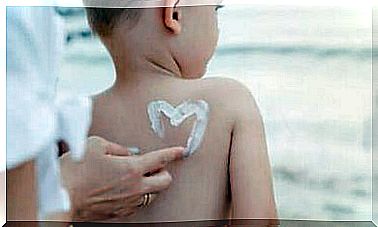10 Self-Esteem Problems In Adolescents – Parenthood

A wide variety of physical and psychological changes occur during a stage that parents dread: adolescence. These changes lead to a number of situations that must be well managed. Teenage self-esteem issues are one of the trickiest issues to tackle.
During this period of life, self-esteem plays a very important role. The adolescent will shape his own identity during this period. The enhancement of his self-esteem will largely determine his relationships and the way he faces life.
Self-esteem issues in adolescents are usually linked to poor self-perception. Without a doubt, feeling good about yourself is a fundamental experience for humans.
If this is not the case during adolescence, many situations arise that make it more difficult to accomplish this step.
Self-esteem issues in adolescents
- Difficulties in maintaining relationships with others. Indeed, not accepting oneself and little self-esteem does not allow the adolescent to maintain healthy relationships with others.
- Depression. Young people with low self-esteem are more likely to suffer from depression. Surely, they do not accept themselves and therefore think that others will not accept them as they are.
- School problems. Poor academic performance can sometimes be caused by low self-esteem. Indeed, believing that one is not capable of learning can turn into an obstacle in the learning process.
- Difficulty expressing feelings. By feeling inferior to others, they may think that what they feel, important or serious, will not be of interest to those around them.

- Eating disorders. Wanting to please others and feeling accepted can cause teens to chase after an ideal image. Anorexia is a serious problem that this obsession with the image can generate.
- Low motivation. Adolescents with self-esteem issues are often listless and lack interest in everything. They don’t try due to the constant fear of not responding to what others expect of them.
- Abuse. Many adolescents with low self-esteem can find themselves victims of abuse and mistreatment. Indeed, adolescents allow themselves to be mistreated or are not able to firmly oppose for fear of exposing their position or of perhaps being rejected.
Other consequences
- Transgressions. For example, when a teenager wants to be accepted by a group, he may be led to take violent or illegal actions even if he knows it is not right.
- Addiction. The teenager who has low self-esteem will find it difficult to become independent. Often this happens when he convinces himself that he is not able to achieve things without the help of others.
- Lack of future projects. The teenager does not believe in his abilities. He finds it hard to imagine future scenarios of personal fulfillment. Indeed, the main obstacle is the fear of failure.
Triggers for Self-Esteem Problems in Adolescents
The main triggers of self-esteem problems can be found in the family, at school or in the media.
An overly critical family environment can be a factor that negatively impacts the adolescent’s self-esteem. Ideally, a family environment should create a climate in which the adolescent feels understood and accepted.
Ultimately, an emotionally stimulating family environment can have a positive impact on the formation of good self-esteem.

In school, bullying is one of the main causes of low self-esteem in teens. Obviously, being the object of constant criticism or mockery from fellow students has a very negative effect on adolescents. Especially the most sensitive.
Likewise, the false images of perfection found in the media have a devastating effect on adolescents.
Indeed, the desire to imitate one’s idols but not achieve it is a cause of low self-esteem in many adolescents.
What about the family?
The family should be the primary support in helping a teenager with self-esteem issues. Communication and constant supervision are fundamental pillars of the support that the family environment can provide to the adolescent.
In addition, strengthening his qualities, highlighting his accomplishments, understanding his changes and giving him confidence are actions that are of great importance at this stage.
When the family fails to help the teenager overcome his self-esteem issues, the best thing to do is seek professional help.









